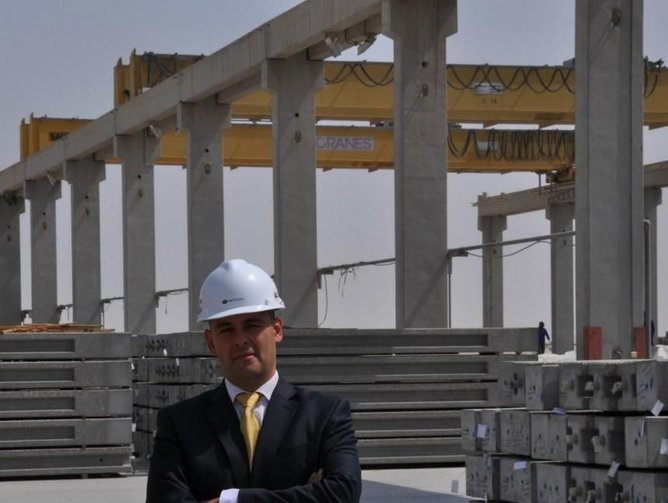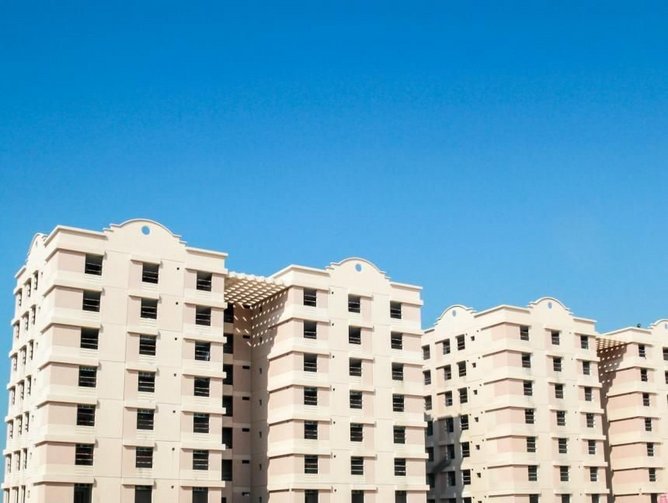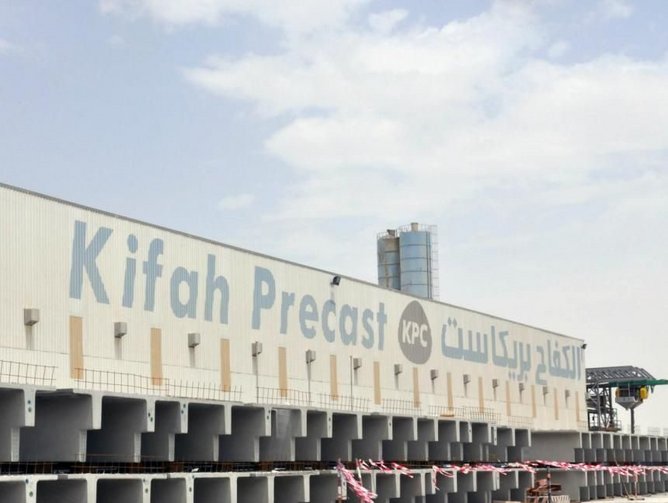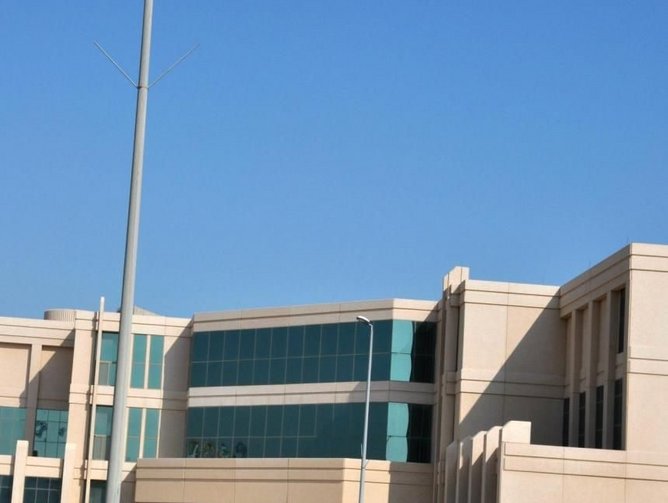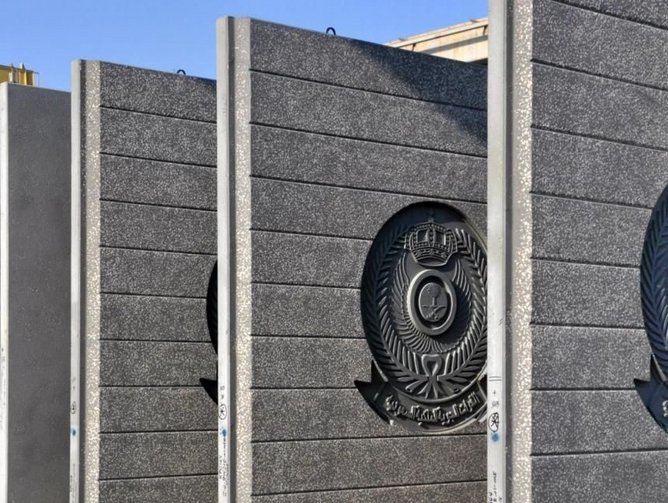The popularity of precast concrete can be attributed to many attractive features: short construction time, high quality, durable and flexible products, customisable aesthetics, and good economic value. Kifah Precast Company uses its high-end technology to create architectural cladding, structural precast units, skeleton products, wall panels, hollow core slabs, and auxiliary elements. José Neto, Kifah Precast Company’s General Manager, has worked hard to ensure processes run as efficiently as possible since he began with the company over two years ago.
“The company was set up in 2009 on the whim of a construction boom,” Neto explains, “And in an effort to diversify the investments of the holding company, it was decided to invest in a precast production facility. This decision foresaw an enhancement of the construction capabilities within the group. I joined the Kifah Precast Company as a Business Development Manager, and after about 18 months it was proposed that I become the General Manager. My main initial focus was the enhancement of the sales process and to increase our exposure to the Saudi market.”
When exploring Kifah Precast Company’s sales processes, Neto was forced to address the changeable nature of business in Saudi Arabia: “You have to work around a high employee turnover,” he says. “The only thing that had to be permanent in the company was a process and a culture, regardless of who came and went. That’s the one standard thing that has to be solid. There was a requirement of process, in which you can monitor and modify, to continuously improve it.”
“Looking into the sales process, there was a clear marketing strategy in place, which needed to be implemented and followed. The first order of work was to generate a series of traceable steps from inception to the materialisation of a sale. Not just that, but the constant monitoring of all steps in between, from first meeting a client to signing a contract.
“Once we had a steady in-flow of business, the second action was to focus on the control of operations. This was only possible to achieve through the joint efforts of the all the operational departments and their respective managers. There was a necessary cultural change to adopt one integrated system of monitoring all major steps in the operational process. This required the internal promotion of a different MO, and the introduction of a cloud computing environment. The outcome of the initiative was a completely integrated, real time, data generation, which enabled performance monitoring and better decision-making with reliable figures.”
Strictly monitoring the company’s processes ensures that Al Kifah is able to stay ahead in a very competitive market: “We’re aiming to be the most efficient provider – not necessarily the cheapest, but certainly the most efficient. Currently it is possible to gauge every single step in the operation, and know exactly what the estimated cost will be. Therefore, ahead of time we are in full control whether it’s a project that we should enter or not. This level of control and accuracy is, in a way, unique to the environment, so it allows us to stay ahead in such a competitive market.”
Neto defines the products themselves as highly-engineered commodities. As the product sold is precast concrete, it cannot be easily differentiated from elements made by the competition. What makes customers flock to Al Kifah is the reliability and service offered.
Al Kifah is careful with its suppliers, knowing that it requires reliability to maintain its positive reputation. The main materials the company requires are cement, sand, aggregate, and steel: “The process by which we accept a vendor for these raw materials is by forming a vendor approval committee, with company employees.”, says Neto. “This brings out all possible wrongdoings in the procurement side. I have direct contact with the suppliers, which gives us a direct link to the supply chain.
“Our suppliers add a lot of value to the organization, since they allow our products to be produced faster, better, and assembled in a more efficient way. The approval process of our suppliers, ends with a direct link to the general management. This ensures that the product being supplied is clearly beneficial to us.”
According to Neto, “to keep suppliers satisfied you need to make your payments on time,” but the relationships with clients require a little more work to ensure fulfilment: “We consider clients even if we haven’t signed a contract. The relationship between our Sales and Marketing team and the clients are natural to the region, and our experienced sales engineers who promote our company, our capabilities, allow a clear vision to the client where we stand in the market.
“Given that our product is sold in a mature and competitive market, contracts can only be signed with a clear commercial advantage to the client. Once a business relationship is stablished, repeated business only happens if we deliver on our promise. If you’ve done business with us once, you will do it again if you’re satisfied regardless of the competition. So we focus on operational efficiency, which is the sole KPI that generates return business.”
Kifah Precast Company is currently working on a high-end residential beach villa development on the shores of Khobar, a project with the MOD, and a large substation development for the Saudi Electricity Company: “These will be industrial buildings in the outskirts of Riyadh,” Neto explains. “Lastly, there is a very large housing development for Saudi Aramco in which we are working on a part of it. The current outlook for the future is showing signs on clear improvement, and since all the precautionary measures have been taken, I can optimistically say that Kifah Precast Company is geared for solid growth with a strong position market position.”
